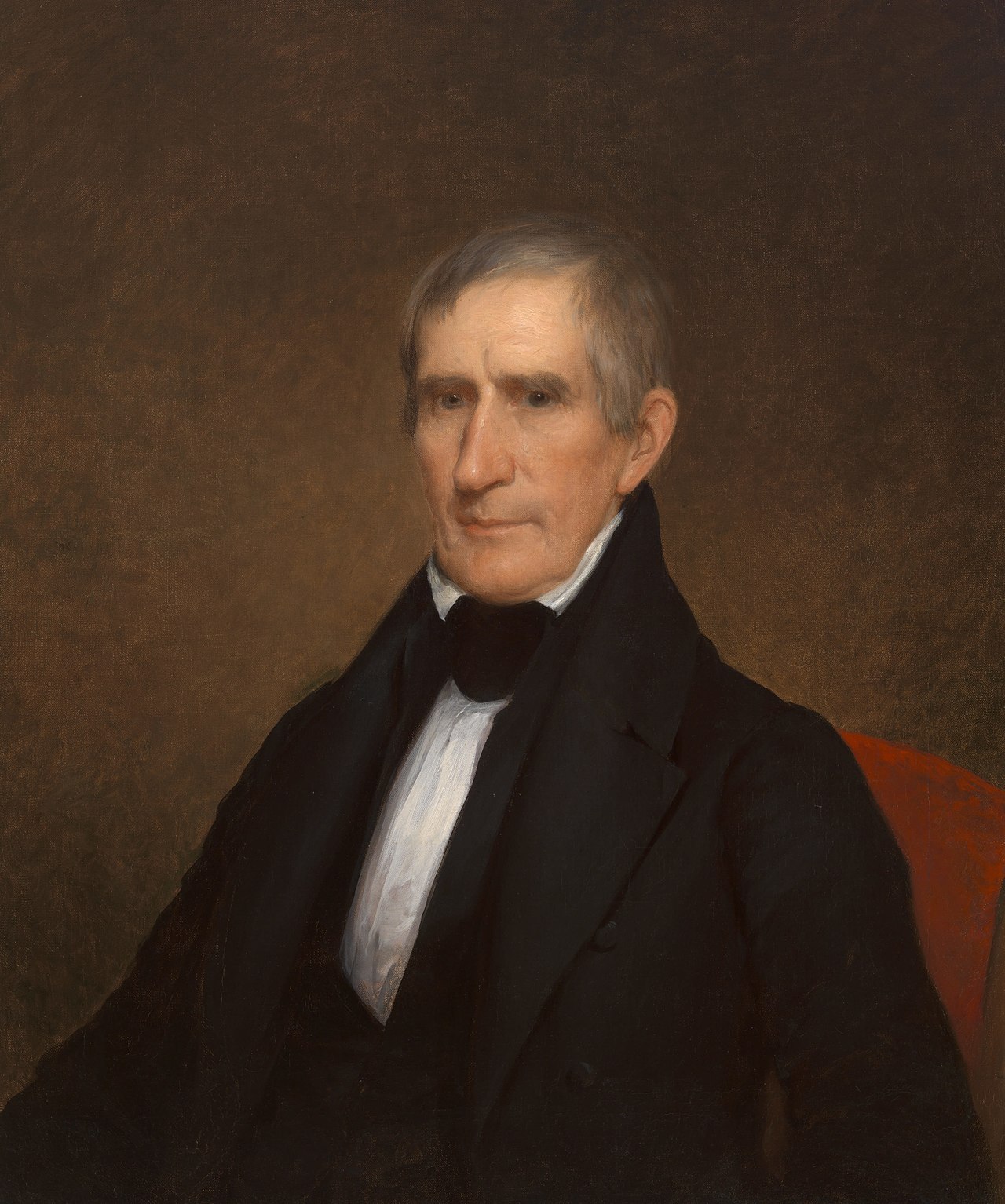William Henry Harrison was the 9th President of the United States and the first president to die in office. He was a War of 1812 hero who became famous in the Battle of Tippecanoe.

During his presidential campaign, his supporters created the slogan, "Tippecanoe and Tyler Too!" Although he was born in Virginia, he moved to Ohio after the War of 1812 and became the first President of the United States to come from the State of Ohio.
He would also be the oldest President to take office until Ronald Reagan in 1981. Unfortunately, his Presidency would be marked more by trivia than actual policy as he would die after only a month in office and become the President with the shortest presidency in American History.
He would be succeeded by John Tyler, who would be the first Vice President to become President after a death in office. This would set an important precedent.
Election of 1836
After the second term of Andrew Jackson, Martin Van Buren became the popular front-runner to win the election of 1836. In response to many of the policies of Jackson, a new party rose in power, The Whigs, and they sought to gain the presidency from the popular Jacksonian Democrat, Van Buren.
Their plan was to run popular regional candidates for president so that Van Buren could not win the necessary electoral votes to win the election, and the decision for the President would be thrown into Whig controlled house to decide the election.
The plan narrowly failed when William Henry Harrison lost Pennsylvania to Van Buren by 7,000 votes.
Election of 1840
Months after Martin Van Buren took office, the Panic of 1837 destroyed his opportunity for re-election. The Whigs took complete control of the Congress in the 1838 elections, and support for the Whigs grew much more for the Presidency.
William Henry Harrison secured the nomination with his running mate, John Tyler. The slogan "Tippecanoe and Tyler Too!" became the battle cry for the Whig nomination for President. Martin Van Buren secured the Democrat nomination but was a weak candidate.
As a result, William Henry Harrison won by a landslide. At his inauguration, he gave the longest inauguration speech in the pouring rain.
Presidency
Harrison's two-hour inauguration speech laid out the framework to repudiate the policies of Andrew Jackson and Martin Van Buren. His first priority was to re-establish the Bank of the United States.
The Panic of 1837 happened due to the absence of a federal bank and the insignificance of the species. Harrison planned on establishing a credit through paper currency. His second priority was to decrease the power of the executive branch by only using his veto power sparingly, and thirdly, he sought to reverse Jackson's Spoils System.
Henry Clay was an influential Whig who had sought the office of President throughout his political life. He was the deciding vote that placed John Quincy Adams into the White House and held an influential role in Congress as a powerful legislature.
He believed that with the election of William Henry Harrison, he would be able to have much influence on the administration. Initially, he did, but he continued to press Harrison too much. Harrison responded to Clay and reminded him that he, not Clay, was the President of the United States and that Clay needed to respect that. Harrison then made Daniel Webster, Clay's political rival, his Secretary of State and filled much of his cabinet with Webster supporters.
Harrison's Presidency only had one official act, and that was to call Congress into a meeting on March 17 to discuss the federal budget.
Death
Popular belief suggests that Harrison died due to standing out in the cold and rain during his inauguration speech. However, he did not become ill until weeks after the event. He developed pneumonia and pleurisy, and the illness rapidly worsened.
Doctors tried multiple cures, but he soon became delirious and died only one month after being elected President of the United States of America. His loss was greatly mourned.
His final words were to his doctor but meant for the ears of his successor, John Tyler. "Sir, I wish you to understand the true principles of the government. I wish they carried it out. I ask nothing more."
His presidency was the shortest Presidency in American History, and John Tyler would go on to become one of the only Presidents not to be elected.
